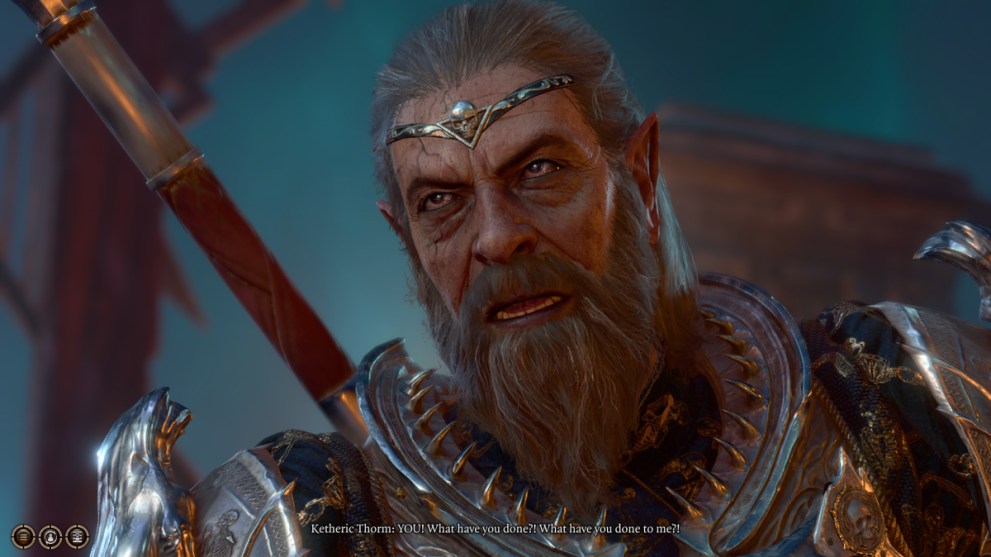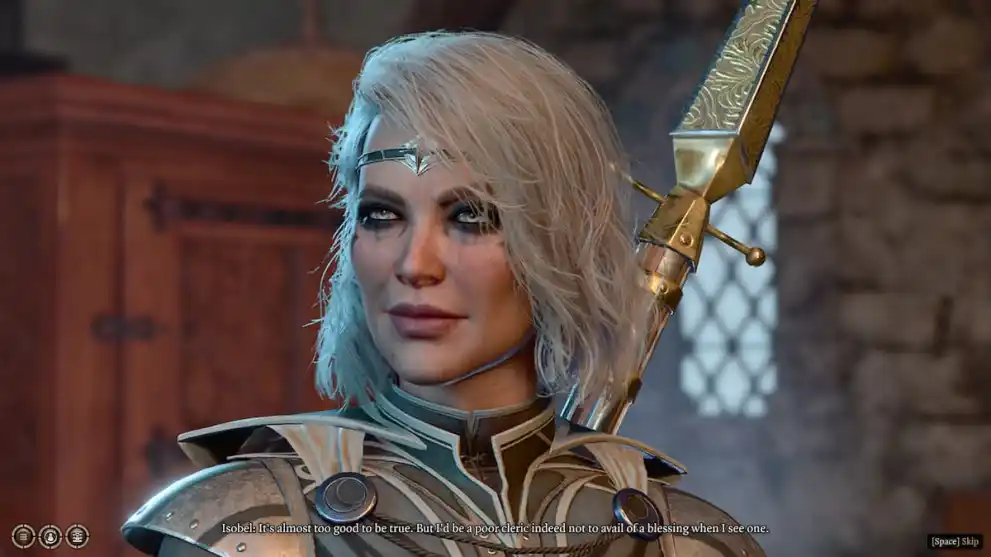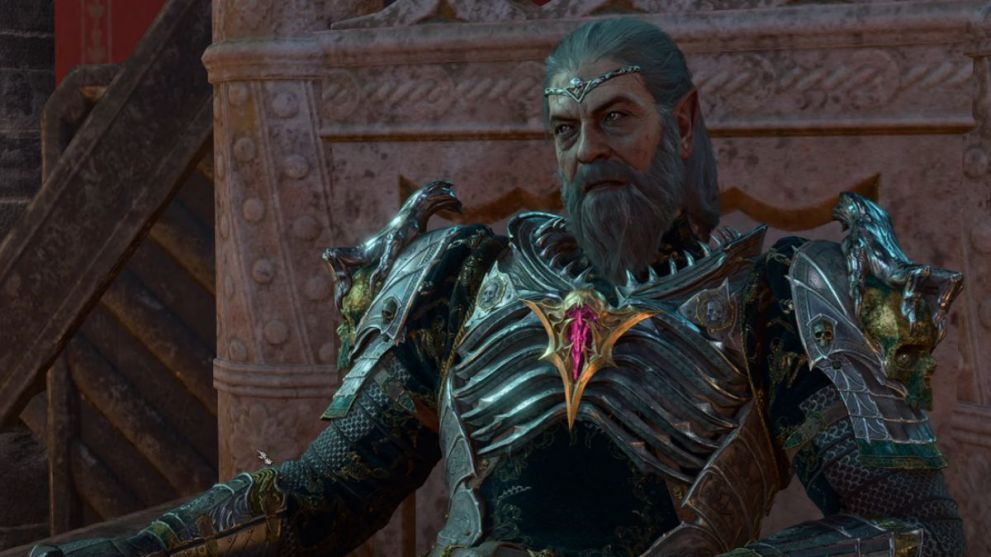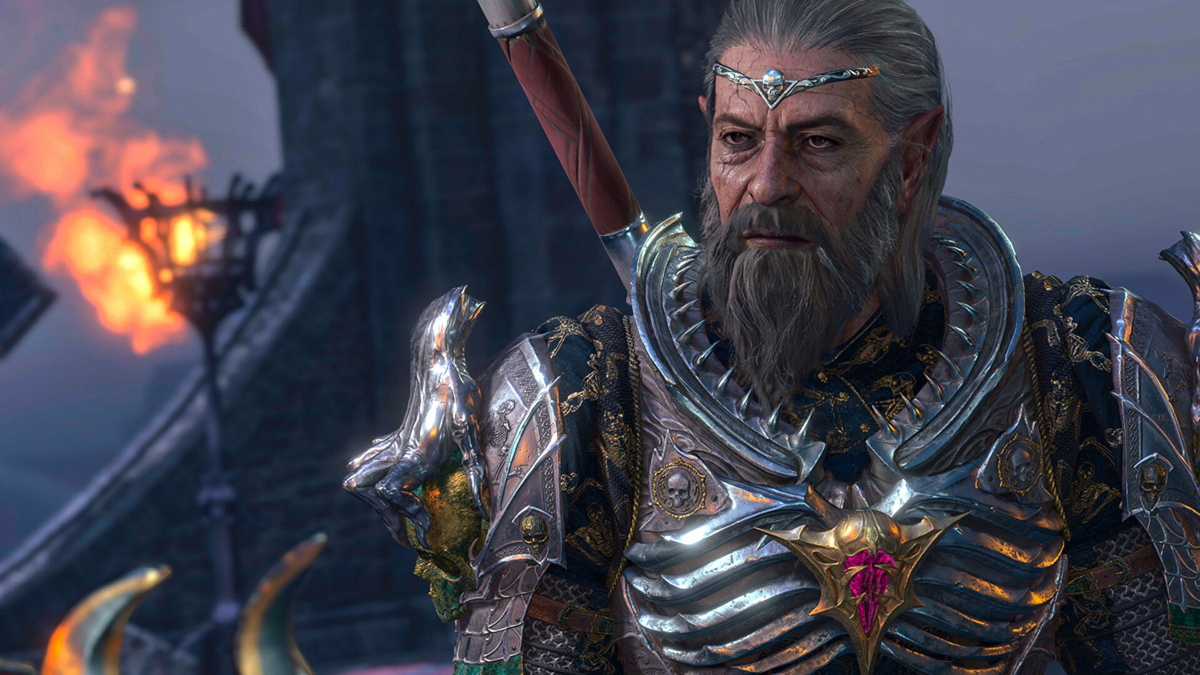Anyone who’s played enough of Baldur’s Gate 3 will have encountered Ketheric Thorm — one of the three leaders of the Cult of the Absolute, and the most significant villain you encounter during 0the Act 2 storyline.
Upon meeting Ketheric for the first time as my Tiefling Rogue character, he didn’t leave that much of an impression on me. At first glance, he appeared to be cold, strict, and hellbent on achieving his goals – typical villain stuff. I just presumed in due time I’d kill him off without a second thought. After all, my Tiefling character is a wild chaotic evil herself, so this was more or less the norm when someone gets in her way. However, I did not expect Ketheric’s story to unravel in such a subtle yet fascinating way during the progression of Act 2.

After several speeches, confrontations, and even a face-to-face encounter with an apostle of Myrkul, Ketheric had finally been slain, and in classic Rogue fashion, it was time to loot his corpse. Upon opening up his inventory, I found a note. Most of the time I don’t bother with these, but this time, I wondered: What other secrets could Ketheric possibly be hiding after all of this chaos?
However, upon reading this note, my heart sank. I didn’t think that this story could get more emotionally heavy, but here we were. This was not a contact from one of his villainous partners or a necromancy Spell from Balthazar. It was a handwritten note from his daughter, Isobel, telling her father that she loves him. Because Isobel addresses Ketheric as ‘Papa’ and refers to herself as ‘Iz’, it seems this is a note from her childhood that Ketheric has kept close to him for years.
Once living happily alongside his wife and daughter, Ketheric and his family were devoted worshippers of Selune, deity of the moon and stars. Tragically, Ketheric would lose his wife at a young age, and though he never was the same as a result of his grief, he raised Isobel as a proud and loving father, finding immense joy as he watched her grow into a beautiful young woman. However, the world was not kind to Ketheric, as Isobel would soon pass away far too young.

Despite being a worshipper of Selune, a deity of light and good, Ketheric had witnessed nothing but intense grief and suffering at the loss of his loved ones. For Ketheric, the light in his world had been completely destroyed, and his beliefs shattered. Consumed with gnawing darkness and depression, Ketheric abandoned his life of worshipping Selune, turning against his trusted goddess to become a devoted follower of Shar, an evil deity of darkness and loss.
Ketheric became consumed in his darkness and pain, emerging as a trusted General of Shar, and began spreading darkness among the lands and people he once loved. He reigned with cruelty as a villainous man, until he was finally subdued by the combined efforts of Jaheira and the Harpers and Halsin and the Druids of Emerald Grove. However, as a final action, Ketheric unleashed the Shadow Curse on the lands, damning all who walk too long in the shadows to devastating changes including distorted bodies and corrupted minds.
This death didn’t last forever, though. Ketheric was soon resurrected from the grave, where he would continue to embrace his grief and suffering, further shunning Selune by devoting himself to Myrkul, God of death and decay. As a gift for his undying loyalty, Myrkul would then grant a second chance at life to Ketheric’s daughter, Isobel. Unfortunately, while Ketheric still treasured Isobel more than anything else, he was a changed man, having strayed far from the guiding light of Selune. This drove Isobel away, which caused Ketheric to become obsessed with bringing her back to him.

Finding the letter from Isobel on Ketheric’s corpse was when the devastation of his story truly began to sink in for me. He had always loved his daughter more than anything in life, and though his inner self was completely corrupted by multiple dark entities, this never changed. His approach of trying to force Isobel back to his side was nothing less than concerning, but underneath his scattered way of thinking and harsh, cold motives, he truly just wanted to be close to the person he cherished most in the world; the daughter he had endured great pains for, and sacrificed everything to bring back.
In conclusion of his tragic tale, the intensity of Ketheric’s love for his daughter was theoretically the blade that drove him to insanity. His love for her was immense, and despite his pain, allowed him to find moments of happiness throughout the grief of his wife’s passing. Losing Isobel was losing himself, and though he did some terrible things, his deep connection and care for his daughter is never questionable.
Though he is a villain, and he abandoned Selune long ago, I just couldn’t help but feel that among the complex persona that is Ketheric, there were still small glimpses of light within his heart, faltering and flickering as they fought against the immense darknesses that had consumed and corrupted him.
Ketheric’s love for Isobel can even be used against him during your final confrontation, opening his eyes to the fact that his actions are doing nothing but pushing her further away from him. In response, Ketheric will give up on his plans, which are direct orders from one of the most powerful and evil deities in Faerun. If that doesn’t cement the strength of his love for Isobel and prove he still cares just as deeply as he always has, then I don’t know what else could.
Though he granted Isobel the gift of a second chance at living, Ketheric also destroyed the bond they shared in the process and helped to emerge and build a great darkness in the world of Faerun. He may have been a bad guy, but the only reason he became this way was his immense grief from the loss of his loved ones and his desperation to be close to his beloved daughter once again.
This has undoubtedly been the most interesting NPC storyline in BG3 that I’ve encountered. The way that the plot unraveled as you progressed through the Act, and the subtle connections to the Thorm family spread throughout the Cursed Lands were fascinating to uncover. In a way, Ketheric’s story also partially plays into the idea of the butterfly effect, which is an intriguing concept to ponder in a choice-based game like BG3.
For Ketheric, his one decision to abandon Selune resulted in a devastating web of events, and then the decision to devote himself to Myrkul and revive Isobel followed a similar pattern, only on a more catastrophic level. In the words of Isobel, may he rest in peace at last, now that he’s dead.













Updated: Sep 27, 2023 09:35 am